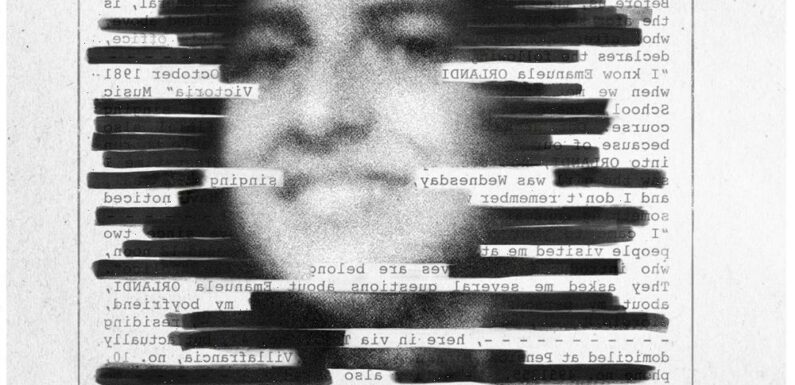
Mark Lewis, who wrote and directed one of the most talked about (and disturbing) true-crime docseries in recent memory, is back on Netflix with a new series, “Vatican Girl: The Disappearance of Emanuela Orlandi.”
Like “Don’t F**k With Cats: Hunting an Internet Killer,” “Vatican Girl” was produced by British TV production company Raw. The four-part docseries will premiere globally on Netflix on Oct. 20.
“Vatican Girl” is the latest probe into a case that started on June 22, 1983, when Emanuela Orlandi, a 15-year-old girl living in Vatican City, disappeared under mysterious circumstances. The case made headlines around the world. Various theories have linked the girl’s presumed abduction to intrigue involving secret services of various countries, the Italian mob, and the Vatican, which has denied accusations of a coverup.
“Vatican Girl” features interviews with Orlandi’s family and witnesses to her disappearance.
Variety spoke with Lewis, who won a Primetime Emmy for “Don’t F** With Cats,” about why he wanted to explore the story he considers less traumatic than his last one, and how the docuseries could lead to the cold case being solved.
How did this project come together?
Producer Chiara Messineo, who is Italian, had been looking at this story for a couple of years and had critically negotiated access to the Orlandi family. She came through the doors of Raw, the company where I work, and it was a real meeting of minds, because both of us could see that this was a story that wasn’t just an Italian story but also an international story. So, while we wanted the series to appeal to an Italian audience, we also wanted to appeal to reach an international audience. That really informed how we made the film.
How so?
We very consciously made the series in two languages. We have Italians speaking in Italian, we have Italians speaking in English, and we have Italians speaking in English and Italian. The whole idea behind that was to try and make this series as accessible to an international audience as an Italian one.
What drew you to the story of Emanuela Orlandi?
It’s a story that Dan Brown could have written. It starts with a small local story of a young girl going missing on a hot summer afternoon in the middle of Rome in 1983, and then the story spirals into one involving the KGB and Cold War politics. We discover factions working within the Vatican to push particular policies and to restore Catholicism to the Eastern Bloc. Then there is the Mafia and the Roman underworld side of the story. So, it instinctively felt like a political thriller, and that really appealed to me.
Did you feel pressure to make the next “Don’t F**ck With Cats”?
“Don’t F**k With Cats” did really well, but it was also a difficult story to have worked on. You couldn’t help but feel a little bit traumatized by working on a story about animal abuse and then the horrific murder of Jun Lin. So I didn’t want to do something after that project that also felt so traumatizing. While the Orlandi case is a very hard and sad story, “Vatican Girl” is a geopolitical story. It’s a story that really tells you an incredible amount about Italy and the extraordinary coexistence of extreme forces – politics, business, and organized crime. It was a fascinating landscape for a series.
What do you think audiences will find most intriguing about “Vatican Girl”?
I hope that an audience will respond on an emotional level to the Orlandi family. The other thing I’m hoping audiences get from the series is a better understanding of the Vatican. While it is the smallest country in the world, it’s so much more than that. It’s a kind of absolute monarchy.
Ultimately though, I hope audiences respond in a way that gives this case momentum and gets the conversation about this case going again.
Do you think the series will help solve the case of Emanuela Orlandi?
The way I see it is we have got a table, and over the years, we’ve been laying down big pieces of a jigsaw puzzle on that table. Slowly but surely, that puzzle is getting filled in. But there’s a few key pieces of the puzzle still missing. I hope, for the family’s sake, those last few pieces are found.
Read More About:
Source: Read Full Article